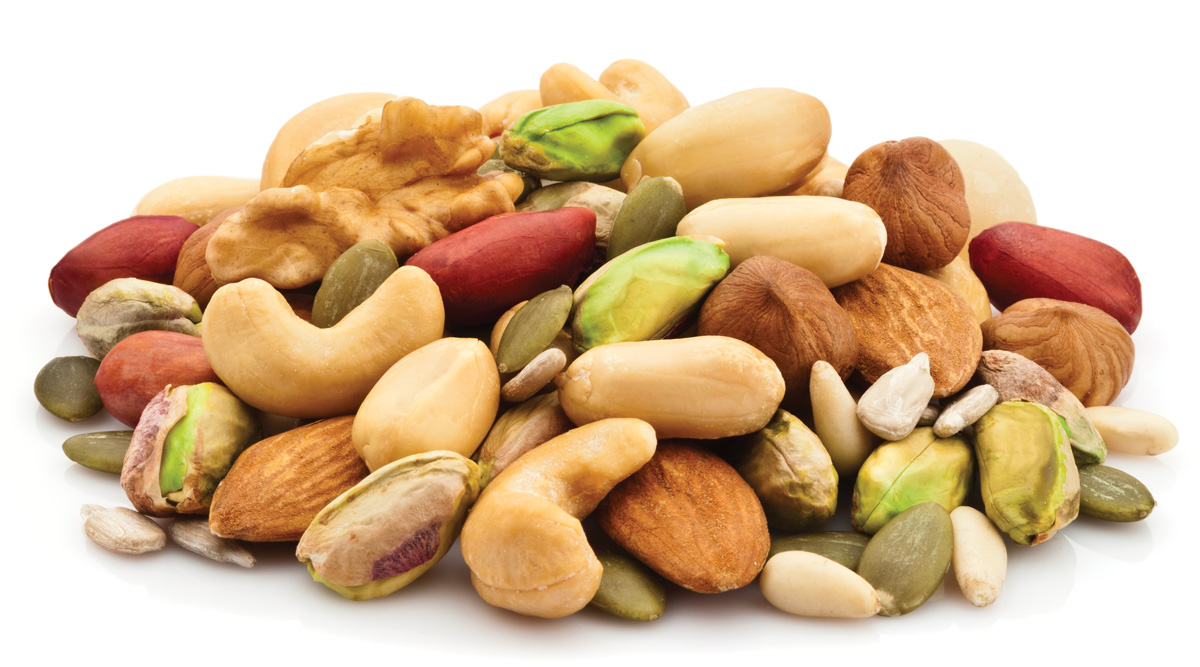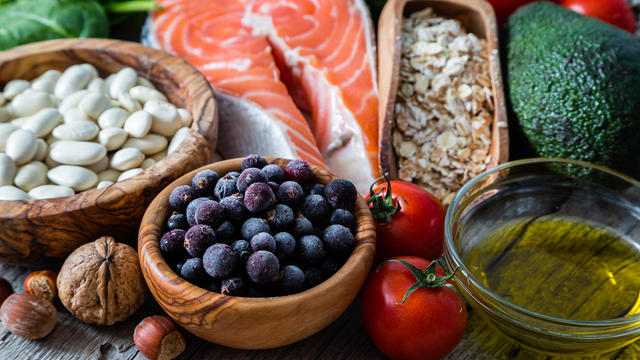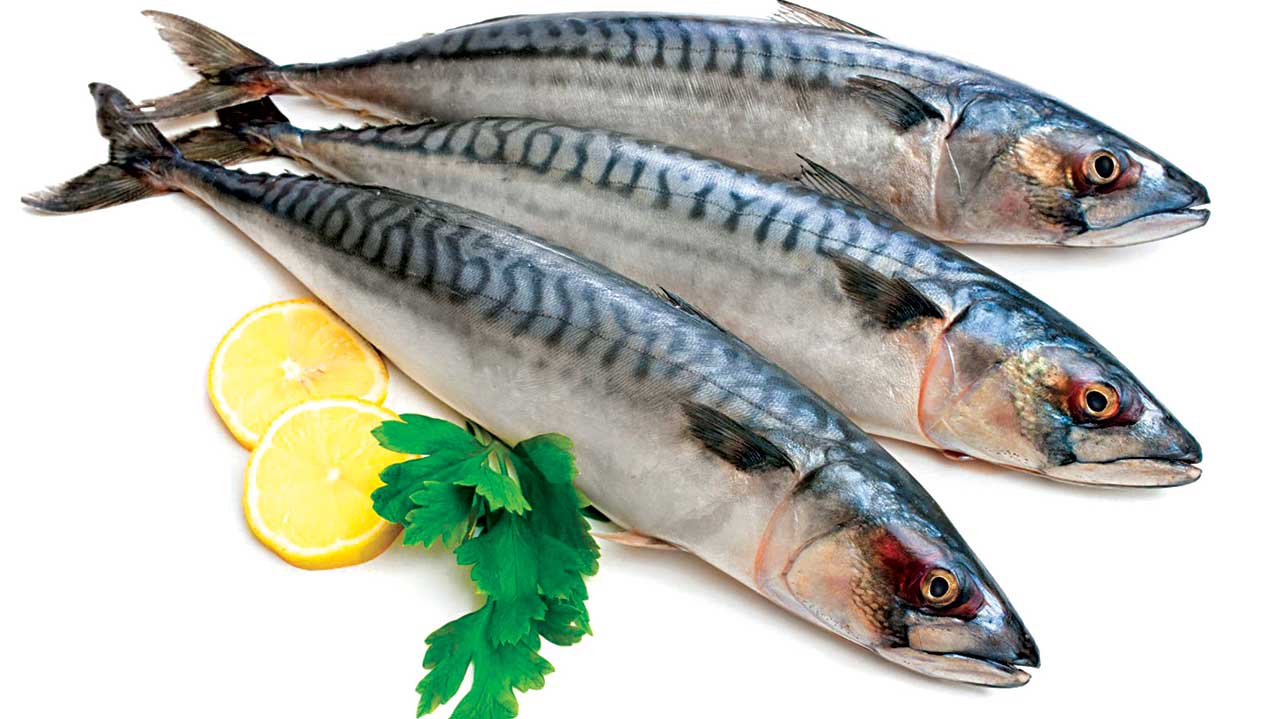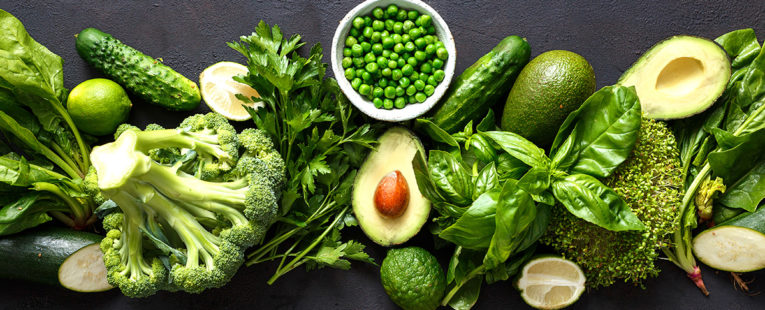Discover the best foods for mental health. Taking care of your physical health and maintaining your mental health are equally vital. We frequently fail to recognise the significant influence that diet decisions may have on mental health. Foods provide more for our mental health than just satisfy our appetite.
Now let’s explore the realm of “foods for mental health” and discover how specific nutrients support the best possible emotional and cognitive health.
What to Eat
- Whole Grain: Carbohydrates provide the fuel that the brain needs. It’s ideal to consume complex carbohydrates like soy, brown rice, oats, and whole wheat.
- Leafy Greens: Fill up on romaine, mustard, spinach, kale, and broccoli. They are all rich in folic acid, which helps prevent weariness and depression.
- Omega-rich foods: foods high in omega-3s, which aid in the synthesis of neurotransmitters, include walnuts, flax seed, salmon, and sardines.
- Priobiotics: foods containing live cultures, such as yoghurt, kefir, tempeh, and pickled vegetables, contain friendly bacteria that are comparable to those that naturally exist in our digestive systems. They may lessen tension and anxiety.
What to avoid
- Simple Carbs: Steer clear of cereal, crackers, bagels, and white bread. Their carbohydrate causes a rise in blood sugar and weariness.
- Processed: Ready-made foods, such as those found in the frozen food section, deli meat, and fast food restaurants, may have higher levels of artificial additives, nitrates, salt, trans fats, and saturated fats.
- Sugary foods and beverages: confections, soda, candies, and coffee beverages. They could give you a lift in mood, but then there’s usually a tremendous crash that leaves you feeling depleted, worn out, and empty.
- Fried: Saturated fat, which is abundant in fried meals, is hard for the body to digest and can reduce the beneficial bacteria in the body.
Though there are many other factors that affect mental health, one major one is your diet. What you eat may have a big influence on your emotions, mental clarity, and overall state of mind.
The abundance of health advantages that come with eating a nutritious diet is what makes it so great: reduced blood pressure, better mood, stronger heart health, decreased chance of diabetes, and greater sleep. Breaking mental habits is the difficult part of eating healthfully. When we want to feel a specific way or are experiencing a particular emotion, most of us turn to food.
It requires resolve and determination to reach past the delicious food in favour of the nutritious options. However, we may experience far greater physical and mental health when we make appropriate dietary choices.
These top 10 foods may support and improve your mental health, and we’ll look at them in this post.
1. Fatty Fish
Omega-3 fatty acids are plentiful in fatty fish like trout, salmon, and mackerel. It is well recognized that these necessary fats have brain-enhancing qualities. Increasing neurotransmitter function, lowering brain inflammation, and maybe even lowering the risk of depression and anxiety are all benefits of omega-3 fatty acids. One famous fatty fish that is full of health benefits is salmon. It is a great source of vitamin D and omega-3 fatty acids, both of which have been demonstrated time and time again to lessen symptoms of sadness and anxiety. An astounding 124% of the recommended daily intake of vitamin D may be found in a 3.5-ounce plate of wild salmon. Additionally, salmon has tryptophan, an amino acid, and vitamin B12, both of which contribute to the synthesis of mood-enhancing compounds in the brain. Try to have at least two servings of salmon every week. Canted wild salmon tastes just as excellent as fresh and is a practical and reasonably priced choice. To make a tasty and nutrient-dense dinner, add it to spaghetti, salads, or soups.
2. Leafy Greens
Rich in nutrients, dark green plant foods like broccoli, kale, spinach, Swiss chard, and chard can be thought of as nature’s multivitamin. Aside from all of their health advantages, collard greens are a great source of magnesium, an important mineral that affects serotonin levels in the body. According to research, those with low serotonin levels frequently have magnesium deficiencies and may also be more prone to anxiety and sadness. Adding an extra handful of these nutrient-dense dark leafy greens to your daily diet will help increase your intake of magnesium, which can support your general health and mood, especially since almost half of Americans are low in the mineral.
3. Berries
Antioxidants found in berries—such as blueberries, strawberries, and raspberries—protect brain cells from oxidative stress and inflammation, therefore enhancing mental health. Additionally, they provide vitamin C, which is necessary for the creation of neurotransmitters like serotonin, which affect mood control. Berries include fibre, which helps to maintain steady energy levels, avoid mood swings, and stabilise blood sugar levels. Savour berries as a snack and pair them with nuts or another form of protein for a filling and mood-enhancing combo.
4. Nuts and Seeds

Magnesium, zinc, and healthy fats are all included in nuts and seeds, which include almonds, walnuts, flaxseeds, and chia seeds. These vitamins and minerals enhance brain health and can lessen the effects of anxiety and sadness.
5. Whole Grains
Your brain receives consistent energy from whole grains, including oats, quinoa, and brown rice. They are abundant in complex carbs and fibre, which support stable blood sugar levels and long-term mental focus.
6. Dark Chocolate
Thanks to its deliciously rich and decadent flavour, indulging in chocolate may undoubtedly make you feel happy and improve your mood. Cocoa and dark chocolate include amino acids that increase serotonin and endorphin synthesis, both of which improve mental wellness. Dark chocolate may also have prebiotic benefits, altering the gut-brain axis and maybe reducing depressive affective states, according to some data from research published in the Journal of Nutritional Biochemistry. Darker chocolate (70% or greater) or raw cacao are particularly helpful in elevating mood since higher cacao contents raise serotonin levels. Sure, this is the signal to incorporate dark chocolate into your daily eating.
7. Yogurt
Yogurt is a probiotic-rich food that promotes gut health, which is crucial for mental wellness. According to the gut-brain link, having a healthy gut can have a favorable impact on mood and lower the chance of developing mental problems. The gut-brain axis is critical to our mental health because it contains 90% of the serotonin receptors, sometimes known as the “happy hormone.” One of the greatest ways to get probiotics is through yoghurt, which supports a varied and healthy microbiota, creates an environment that is conducive to plentiful production of serotonin, and helps regulate mood overall. Selecting Greek yoghurt, which has a higher protein content than regular yoghurt, guarantees an extra nutritional boost. Additionally, adding chia seeds to your yoghurt increases your intake of omega-3 fatty acids and provides gut-friendly fibre, both of which are important for supporting mental and digestive health.
8. Avocado
Avocados are not only a tasty fruit but also a fantastic source of vitamin E and good fats. These nutrients can help prevent cognitive decline and are crucial for maintaining brain function. The high concentration of monounsaturated fats, including oleic acid, which is present in avocados, may lower the risk of depression and improve brain function. In addition, avocados are a great source of important nutrients, including vitamin B6 and folate, both of which are necessary for the creation of chemicals that control mood. Avocados are a good source of antioxidants, especially vitamin E, which shields brain tissue from oxidative stress and inflammation to maintain general brain health. Apart from their nutritional worth, avocados’ rich flavour and creamy texture can heighten sensations of satiety and satisfaction, which can have a favourable impact on mood.
9. Turmeric
Curcumin is a substance found in the spice turmeric, which is well-known for its bright yellow hue. Due to its anti-inflammatory and antioxidant characteristics, curcumin has the potential to be used to treat mental health issues, including depression.
10. Lean Proteins

The amino acid tryptophan, a precursor of serotonin, is present in lean proteins including chicken, turkey, and tofu. An important neurotransmitter for controlling mood and happiness is serotonin.
In conclusion, the food you consume has a big influence on how you feel. By including these top ten items in your diet, you may strengthen cognitive performance, lower your risk of mood disorders, and improve your general mental health. A balanced diet is essential for maintaining a healthy mind, along with other healthy lifestyle choices. For a better and more fulfilled life, start putting these nutritional priorities in place right away.
FAQs: Revealing the Mysteries of foods for Mental Health
-
Can some meals actually help with mental health issues?
Indeed, eating a diet high in antioxidants, vitamins, and omega-3 fatty acids can help improve mental wellness.
-
How does gut health relate to mental wellness?
The gut-brain connection highlights how a healthy microbiota affects mood and cognitive function.
-
What foods should one avoid in order to improve one’s mental health?
A steady mental state can be achieved by reducing the consumption of sugar-filled meals and processed foods.
-
Does hydration affect one’s ability to think clearly?
A: It is true that maintaining proper hydration is essential for mental clarity and brain health.
-
Is there a quick fix for using nutrition to improve mental health?
A steady diet that includes a range of nutrient-dense foods can have long-term positive effects on mental health, even though there is no quick fix.










1 thought on “Optimize Your Mind and Mood: Discover the Top 10 Foods for Mental Health”